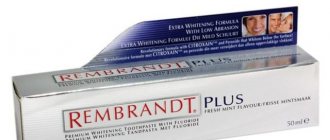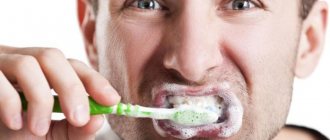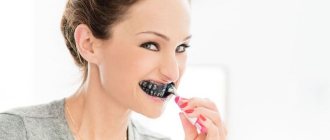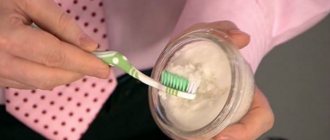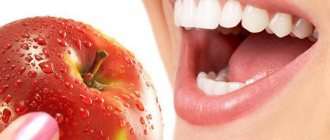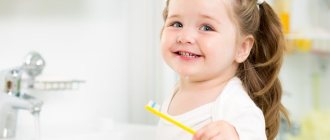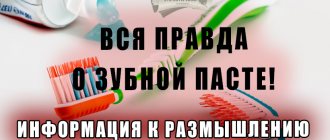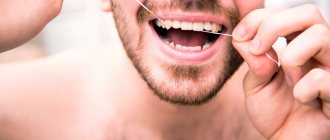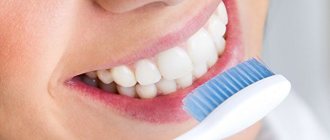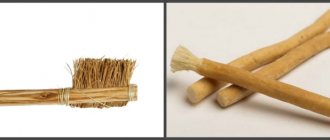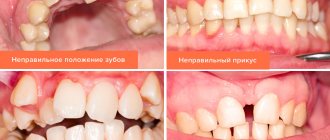Is it possible to wash your mouth and brush your teeth with soap: answers from doctors and possible consequences
If a child swears and his vocabulary is full of swear words, parents and teachers often pronounce the well-known threat advice that it would do the bully a favor to wash his mouth with soap in order to get rid of the foul language. And this, as some adults believe, is a normal and completely harmless way to solve the problem, it’s possible. What can I say, it’s rare that a child hasn’t tried a fragrant-smelling soap on his tooth, and nothing, as they say, everyone grows up safely. Many people in childhood try to brush their teeth with soap, and nothing happens, they are alive and well. However, modern parents are advised by both psychologists and doctors to deal with the situation wisely.
Activated carbon cleaning
Activated carbon has received many reviews as an excellent whitening agent. What is the best way to clean and use activated carbon? It's easy to use.
Crush the tablet and rub the bone formations in the mouth, the effect is visible immediately after the first time. Of course, if there is a strong plaque, then you need to carry out several whitening courses.
You cannot use activated carbon every day, otherwise you can damage the enamel, once a week is fine.
In ancient times, people generally brushed their teeth with charcoal. Of course, not activated, but ordinary ash, because before they cooked over fires and heated the house using stoves, so in principle there were no problems with ash and coal. Apparently, the activated carbon cleaning method was created thanks to our ancestors, or rather, their method.
Is it possible to wash your mouth with soap?
Soap is the best product for personal hygiene. It began to be made in ancient civilizations, and the first mention of the soap production process was found in Mesopotamia in 2200 BC. e. Today on store shelves you can find many different types of product: liquid and solid, cosmetic, for cleansing the skin, and household, as a detergent.
Perhaps every kid at least once in his life tries to taste soap, because it smells so delicious
Despite the fact that soap is present in every bathroom, it is extremely undesirable to put it in your mouth, much less replace toothpaste with it. Soap cleanses, moisturizes and nourishes well, but only when it comes to the epithelium layer, that is, the skin. And if it gets on the mucous membranes of the mouth or nose, which are by default more delicate and sensitive, soap can cause at least severe irritation. Therefore, it is absolutely not suitable for washing your mouth and brushing your teeth.
In addition to babies, pregnant women often experience an irresistible urge to lick soap.
Doctors have formulated for parents a number of reasons why it is not recommended to wash your mouth and brush your teeth with soap:
- The oral cavity is not cleaned if we wash our mouth with soap. Or it may even happen the other way around: by licking dirty soap or picking up soapy water from dirty hands, the infection will get into open wounds of the oral cavity, which can lead to the development of oral diseases, for example, stomatitis.
- Some people mistakenly assume that soap can be used to clean the mouth as a disinfectant. Not at all, in the human oral cavity there is an alkaline environment, which is necessary for the primary breakdown of food, and bacteria that are resistant to it, so the use of soap, which is also a weak alkali, cannot completely destroy these bacteria.
- When washing your mouth or brushing your teeth with soap, some of the soapy water can enter the body, and this in turn increases the risk of colic and indigestion.
Important! If a child accidentally swallows soap suds or water, he is given anti-colic drugs, for example, Bobotik or Espumisan, as first aid. And be sure to see a doctor.
So parents and teachers need to keep an eye on their kids, and for older children, choose other effective methods to stop them from swearing.
Advice from psychologists
First, pay attention to the environment in which your baby communicates, look at how you talk at home. If in your family it is customary to use obscene words in conversation, then what do we want from the child. This also applies to kindergarten, although it is more difficult.
There are no swear words in our family's vocabulary, so it was very unpleasant when our son, returning home from kindergarten, began to swear. We didn’t punish him for this, we just emphasized that this is a bad word and neither mom nor dad say it. This happened all the time, because obscene words can be heard at every step: in the yard, in the store, at school and in the park. For some people, this is a kind of communication, so it will not be possible to completely protect your child from profanity.
Secondly, let’s look at the child’s behavior as a message, that is, in what cases does he swear. Maybe he wants to attract attention, express anger and powerlessness, ask for help. Or maybe it’s just a habit, mindlessly copying the “cool” language of adults, or a lack of vocabulary.
A child's behavior is his language. Through their actions, children convey messages to us. A newborn baby cries when he is hungry, a three-year-old child is naughty because he wants to have his own way, and a five-year-old girl brings candy to appease other girls. What else can you do if someone around you is swearing and you don’t like it? For example, at the camp it was possible to make changes to the plan and arrange a game-discussion with the children.
Galina Zaripova, psychologist
https://www.b17.ru/article/materishsja_vymoj_rot_s_mylom/
Instill in your children a love of language, read to them more, study with them and, of course, watch how you speak. Suddenly, parents and teachers need to wash their mouths with soap first.
Source: babyzzz.ru
Tooth soap, pros and cons
Pros and cons of using tooth soap instead of toothpaste . Thoughts on the matter.
Tooth soap sounds unusual in the 21st century, but it's worth discussing.
Of course, now there is a huge selection of toothpastes, and the use of soap to clean teeth has somehow become forgotten.
I have been making toothpastes and gels for several years. Any toothpaste must contain a component to cleanse tooth enamel - either a surfactant (which is common) or plant saponin (extract of yucca, soap root or soap nuts).
You don’t want to swallow synthetic cheap or even more expensive surfactants. Day after day, microdoses of surfactants enter the stomach along with saliva - not physiologically. Even harmful.
The use of plant saponins of course increases the price of toothpaste, but God bless him! With price.
But even taking plant saponins, what will you inevitably have to deal with?
We choose the most physiological preservative. there is no other way out. Or rather, it wasn’t until I came across the topic of using tooth soap. I chose tooth soap, and I'll explain why.
1) Natural soap perfectly cleanses teeth and oral cavity from bacteria. (unlike surfactants and plant saponins)
2) It is completely physiological . Even if a drop of the solution is swallowed (although we are adults and would not allow this), it does not cause any harm to the body.
3) Does not require preservatives. Its own antibacterial and antimicrobial properties are so good that they are also in demand among field surgeons.
4) Tooth soap itself strengthens the gums, reduces bleeding, inflammation and tones the tissues. For periodontal disease and stomatitis , it is logical to use it, unless the doctor has prescribed you another means for cleaning your teeth.
5) Soap itself removes plaque well and softens tartar .
6) Using additional additives in soap (sea salt, pine needles, cloves, etc.) we further improve gum care.
7) Coconut oil in soap superfat contributes to the prevention of dental caries .
 Soap has a natural alkaline environment , which is so necessary for dental health.
Soap has a natural alkaline environment , which is so necessary for dental health.
9) And, in the end - efficiency! Yes, simplicity and conciseness. A small block can be used for a very long time.
There are two disadvantages, in my opinion:
1) Unusual . Many people are accustomed to a bright aftertaste after using the paste, myself included.
This can be mitigated by using rinses (tea tree, propolis, mint) with a refreshing taste.
2) It is impossible to introduce such a component as hydroxyapatite .
Hydroxyapatite “cements” microcracks in tooth enamel and is present in some professional toothpastes for sensitive teeth.
That's probably all.
There are no more cons. Some advantages) Yes, it's worth a try!
Source: www.livemaster.ru
Is it possible to brush your teeth with laundry soap?
Laundry soap, unlike cosmetic soap, contains acids and alkalis. The pH balance level fluctuates at 11-12 units. Made from vegetable and animal fats and acids. Available in bars, liquid and powder. It is considered non-allergenic and has antibacterial properties.
The color of the bar varies from yellowish to dark brown; the numbers on the surface indicate the amount of fatty acids in the composition. Indicators range from 65 to 72%, the latter option is made taking into account GOST. This is the best option to take for the best effect.
Teeth cleaning
Teeth are brushed to maintain healthy gums and oral cavity. Before the invention of toothpaste, powder or soap was used. Not everyone will like the laundry soap solution; there is a risk of swallowing it, which is not recommended. To clean your teeth, choose a high-quality product without any chemical additives.
Dr. Jud, an American professor and scientist, recommended using soap to clean teeth and mouth. He conducted research, the result of which was recommendations to use cosmetic or laundry soap instead of toothpaste. Both options, according to the scientist, are capable of destroying harmful bacteria, as well as glycerin from the surface of the enamel.
The professor recommended moistening the toothbrush with warm water to soften the bristles, then hitting the bar with the bristles several times to gently adhere the particles. Next, you need to carefully move the brush in the direction from the gums to the teeth. Additionally, you can use vitamin C, D, calcium - such supplements will improve the condition of the gums.
For convenience, you can leave a piece of the bar in hot water (100 ml) for 1 hour. Moisten your toothbrush with the resulting solution and brush your teeth 2 times a day. The only thing is that you need a fresh solution every time.
Why brush your teeth with soap
1. Traditional toothpaste contains a large number of substances harmful to the body, which manufacturers do not like to mention.
For example, fluoride, which in significant doses can cause severe intoxication. The benefits of fluoride in the fight against bacteriological flora of the oral cavity have not yet been proven. 2. The second harmful substance, glycerin, prevents the full restoration of enamel. To wash off glycerin after brushing your teeth, you will need at least twenty rinses.
3. Sodium lauryl sulfates and sodium laureth sulfates are considered extremely harmful. They form a persistent foam when brushing your teeth, but contribute to the destruction of cellular protein. This provokes the penetration of painful microorganisms through the human mucous membranes into the inside.
Effect of soap on teeth
The beneficial effect of soap lies in its ability to create gammaglobulin when it comes into contact with mucous membranes. This substance eliminates fungi, bacteria, trichomonas. According to older people who use the method, they rarely go to dentists and do not experience problems. It is important to avoid swallowing the solution and rinse your mouth with warm water after cleaning.
Not every product is suitable - many manufacturers add chemicals, the quality of the detergent is far from what it was in the USSR. But the harm to the body from toothpaste containing fluoride is greater. If you choose between them and soap, you choose the latter; you need to buy the toothpaste that does not contain fluoride.
Traditional medicine recommends preventive teeth cleaning three times a week. The beneficial alkali in it will have a beneficial effect on the balance of microflora in the mouth, and also eliminates plaque, stone, and has an antiseptic effect.
Health by teeth
Nowadays, one of the most paid professions is the profession of a dentist (aka dentist). Perhaps today there is not a single person in civilized countries who has never visited a dentist. Regular visits to the dentist are considered almost a rule of good manners.
But it was not always so.
My great-grandmother died without ever paying the dentist a visit. She died at the age of 92, keeping all 32 teeth healthy. But she became acquainted with tooth powder, and then with toothpaste, in the second half of her life, and, by the way, she never warmed to them... Unlike a toothbrush. By the way, I also have a lot of respect for dentists, but I only visit them occasionally, probably to show off...
Fresh breath
My great-grandmother said that bad breath comes mainly from bacteria that live and multiply in a humid environment. To stop the growth of bacteria, in the morning, as soon as she woke up, she, lying on her back, opened her mouth - quite wide, but freely, without effort, and for about 10 minutes she simply breathed through her open mouth. At the same time, the oral mucosa dries out, even dries out. And when the mouth closes again, new saliva washes the mouth and the breath actually becomes fresh, even without brushing the teeth.
Oil cleaning
Then my great-grandmother picked me up, and together we went to the kitchen for vegetable oil. Taking a sip of oil into our mouths, we sucked it like candy for 5-7 minutes. Then, without swallowing, they spat it out. Vegetable oil not only removes bacteria from the oral cavity, but it is believed that by removing plaque from the tongue, it also removes congestion from those organs that project onto the tongue.
Birch charcoal instead of toothpaste
And then she and I went to brush our teeth. Since childhood, I was taught to use toothpaste, and my great-grandmother used to brush her teeth with birch charcoal in the old fashioned way. Surprisingly, my great-grandmother’s teeth were always whiter than mine, polished with WHITE tooth powder, shone like pearls, and they remained healthy until the end of her life. About once a month, my grandmother “lightened” her teeth with a mixture of soda and salt in a 1:1 ratio.
Massage gums with a toothbrush
My great-grandmother brushed her teeth with charcoal, but she also respected the toothbrush very much - after brushing her teeth, she quite energetically massaged her gums with a toothbrush. Massaging the gums with a toothbrush improves blood circulation, which helps the gums and tooth roots to be actively supplied with oxygen.
Laundry soap instead of toothpaste
I learned about this unique method of brushing teeth not from my great-grandmother, but from my mother-in-law, who, unlike my great-grandmother, is well acquainted with dentists. True, since my mother-in-law started brushing her teeth with laundry soap instead of toothpaste, she lost interest in dentists. When contacted with the mucous membrane, soap promotes the formation of gammaglobulin, which is necessary to fight bacteria, fungi and trichomonas.
Folk recipes
* * * Tartar can be removed using oregano herb. To do this, you need to thoroughly chew the fresh herb of the plant 3 times a week for 15-20 minutes.
* * * To keep your teeth enamel white and strong, you can brush your teeth with wood ash. Better yet, wipe your teeth with the ash of a burnt match and leave for 5 minutes. At the same time, tartar falls off and the gums become stronger.
*** For caries, it is advisable to replace toothpaste with milk powder. Bleeding gums and bad breath disappear, and the formation of tartar slows down sharply. Rinse your mouth and throat with linden blossom infusion. To prepare the infusion, add 1 tbsp to a glass of cold water. linden blossom, leave for 5 hours, strain and add 5 g of purified baking soda. For periodontal disease and loosening of the gums, it is necessary to mix tooth powder with calamus root powder (0.5 g per dose) and brush your teeth with this mixture 3 times a day. Toothache will be relieved by applying cotton wool soaked in oregano oil to the sore tooth (pour 0.5 liters of sunflower oil into a handful of finely chopped herbs, leave for 8 hours, strain and squeeze).
* * * Regular rinsing of the mouth with an infusion of onion peels will help get rid of caries and periodontal disease. 3 tsp pour 0.5 liters of boiling water over the raw material, bring to a boil, strain and leave for 8 hours.
* * *
Whitening and simply brushing your teeth is very useful with homemade toothpaste, which is prepared as follows: 10 tablets of crushed activated carbon, 2 teaspoons of fine salt, and pour all this with vegetable (sunflower, olive or other) oil until it becomes a paste. This amount of paste is enough for a week.
* * *
Some peoples do not brush their teeth at all, but only rinse with salt water, and the health of their teeth can only be envied.
Tatiana Chekalova
Share link:
Other means
Besides soap, there are many other products that you can use instead of toothpaste to clean your teeth:
- table or sea salt. Contains calcium, iodine - substances that support dental health,
- Activated carbon. Grind 2 tablets, pour onto a brush, brush your teeth, then rinse your mouth well. The product removes plaque,
- wheatgrass While relaxing in nature, you can brush your teeth without a toothbrush by chewing young shoots of wheatgrass,
- baking soda. Whitens teeth. You cannot use abrasives often, otherwise the enamel will become thinner,
- currant shoots. Peel off the bark and chew. The substances included in the composition strengthen the gum tissue,
- ash. Acts as an abrasive and disinfectant. Used like activated carbon
- apple. A great way to clean your enamel after eating is to chew on a hard apple. This is a natural massage of the gums, and fruit acids will eliminate germs,
- powdered milk. Reduces the risk of tartar formation, eliminates bleeding and unpleasant odor,
- horsetail Dry grass is crushed using a coffee grinder, applied to a brush, and brushed teeth. The flint contained in the composition stops bleeding and strengthens the gums.
About other ways to brush your teeth
If you don't have your favorite toothpaste on hand, there are many other options for oral hygiene. Here they are:
- Soda. It is used for teeth whitening due to its abrasive properties. You should not frequently brush your teeth with baking soda because it thins your tooth enamel. The product is applied to a toothbrush and brushed as you would with a regular toothpaste.
- Salt. You can use regular table salt, but it is better if it is sea salt. It is enriched with iodine, calcium, and fluoride, which help maintain healthy teeth.
- Ash. If you find yourself without pasta at your dacha, and there is a fireplace or stove there, then you can use ash for hygienic procedures. It is an abrasive and disinfectant that destroys bacteria.
- Activated carbon. If you have this product in your medicine cabinet, you can simply crush two tablets, apply it to a brush and clean the surface of your teeth, and then rinse your mouth well.
- Currant branches. This hygienic cleaning product is used in summer. The twig must be peeled from the bark and chewed. The bark contains substances that strengthen the gums.
- Wheatgrass. If you find yourself outdoors in the summer without paste, then young stems of creeping wheatgrass are a good option for an alternative cleaning of the oral cavity.
- Powdered milk. This product will reduce the formation of tartar, bleeding gums, and also eliminate unpleasant bad breath. Therefore, the product is perfect for heavy smokers.
- Apple. As a hard fruit, it creates a good workload on the teeth, and the fruit acids in its composition cleanse the enamel surface of microbes. Ascorbic acid in this affordable product will also be beneficial for teeth. So an apple is a great cleansing dessert.
- Horsetail. The dried herb should be ground in a coffee grinder and applied to a brush, and the chewing organs should be cleaned as usual. The advantage of this product is the presence of silicon in its composition. The substance has strengthening properties and the ability to stop bleeding. So this medicinal plant can serve as an alternative to toothpaste.
Many admirers of traditional medicine and natural cosmetics prefer non-traditional hygiene products for the care of teeth and oral cavity, among which soap products can be distinguished. If you are interested in the question of whether it is possible to brush your teeth with laundry soap, you should study information about its beneficial properties, as well as read the recommendations for the procedure.
Possible risks
As mentioned above, not everyone can use laundry soap for oral hygiene. The specific taste in some people causes nausea, even vomiting, therefore, if this method is rejected by the body, there is no need to force it, choose another remedy from the above.
Natural laundry soap is active against germs. On the one hand, this is good, but on the other hand, with regular use, the body stops fighting pathogenic microorganisms on its own. In order not to reduce the capabilities of the immune system, provoking the risk of serious viral and infectious diseases, you need to use this remedy carefully.
When brushing your teeth with a foam solution, you should refrain from swallowing saliva and foam, as this can cause indigestion and diarrhea.
Do you feel nervous before visiting the dentist?YesNo
Another unpleasant consequence of brushing your teeth with laundry soap is a change in the color of your teeth. This side effect occurs over time and not in every case. But after about a year of regular use, the enamel may turn slightly yellow.
This is not noticeable because people’s teeth are not naturally white. However, if you want to shine with a Hollywood smile, you need to use the product rarely (once a week), or abandon the method in favor of other folk remedies listed above.
How to carry out the procedure correctly
To clean the chewing organs with laundry soap, you must first properly prepare the product for use. It can be grated on a coarse grater or crumbled into small pieces into a clean container, poured with warm boiled water, and then stirred thoroughly until smooth and applied to a toothbrush. The procedure should be carried out no more than 3-4 times a week.
To prevent diseases of the gums and oral cavity, a soap solution should be used. To do this you need to add 1 tsp. crushed laundry soap into a glass of water, shake gently and, taking the resulting liquid into your mouth, hold for 1-2 minutes.
Reviews
Most reviews are left by people of the older generation, who have long known the healing properties of laundry soap. It is used for cosmetic purposes, to get rid of dandruff and split ends, to treat dermatitis, pimples and acne. When it comes to brushing your teeth, some people prefer to use a good toothpaste followed by a foamy mouth rinse. It turns out that fungi, bacteria and microbes on the teeth and gums are completely eliminated. Gums and teeth, judging by reviews, become healthy, caries ceases to bother you.
Brushing your teeth with a foam solution is recommended not only by grandmothers, but also by experienced doctors. Sometimes this method becomes the only way to get rid of inflammation and bleeding gums when other means do not work.
People talk about their experiences using laundry soap. Some people, from childhood, were taught by the older generation to brush their teeth with soap, so they have no unpleasant associations with its taste or smell. For others, it is more difficult to get used to a specific taste, but if you evaluate its effectiveness, you can be patient. Yes, the taste of modern toothpastes is much more pleasant, but not all of them are truly healthy and harmless.
The most common use is to lubricate your toothbrush or soak it in a foam solution overnight. Overnight, all germs are completely eliminated, there is no risk of oral infection. This does not eliminate the rule of changing your brush every three months, but it will make your hygiene safer during this time.
To summarize, it can be noted that laundry soap really helps with many cosmetic problems, inflammatory processes on the skin and oral mucosa. Proper use after consultation with a doctor will be beneficial, but if you neglect sound recommendations, you can only worsen your health.
Source: za-rozhdenie.ru
Active components
Glycerin is one of the most effective natural moisturizers.
Natural birch tar - has a strong restorative, antiseptic, antiparasitic, drying, anti-inflammatory, soothing effect
Packing: 140 g, 4x100 g
Still have questions? Ask
For a runny nose, rinse your nose morning and evening. Apply the foam onto your little finger and into your nose as far as possible, hold it for 5-10 minutes, then blow your nose. This way I cured a runny nose in 4 days, which I usually take 2-3 months to treat with all sorts of pharmacy crap. I brushed my teeth for about a week (along with rinsing my nose) with a brush and soap and didn’t notice how my swollen burgundy throat went away! I wash my hair, my hair is thin, oily and falling out, the first time I didn’t like the effect after washing - my hair felt dirty... The second time it’s better, and the third time it’s just super! Completely clean, dandruff-free and shiny. So do mine now. I bought soap at Auchan for 14 rubles, where they sell baby soap and creams. Then I bought pure tar at the pharmacy and experimented with it.
the soap has a pleasant smell. I wash my hair with it. My hair becomes soft.
Really good soap. I recommend it to everyone: both men and girls. This soap is especially useful for washing intimate places. Soap is a good antiseptic and an enemy of thrush.
Tar soap is worthy of all praise!! For as long as I can remember, I have had so many rashes on my face: subcutaneous rash, large “painful” pimples, etc. And I did the cleaning and squeezed it out myself... it’s endless... I went to the dermatologist and it turned out to be demodex. After I was cured, I constantly use this soap - it’s just a MIRACLE. the face is smooth, even, velvety, without greasy shine, there is no feeling of tightness, all scars from old acne are healed. I threw Chanel, Dior, etc. washbasins away. I read here that it cures dandruff, I’ll definitely try it.
I’ve been using this miracle constantly for the second year now, I recently even started brushing my teeth, the bad breath goes away for a long time, the condition of my gums has improved - I brush in the morning and evening, then with any toothpaste. And, of course, I support all the rave reviews about tar soap. My whole family wouldn’t change it its more expensive than any other remedy
How the hostesses got out - in the material of the portal 2×2.su
The words “deficit” and “USSR” remain synonymous for many people to this day. Indeed, some things were greatly lacking at that time. People stood in long lines for standard products - milk, meat, bread. There was no question of going to the store and easily buying sweets for a child or cosmetics for a wife. Then their own ingenuity came to the aid of Soviet housewives. By the way, some families still use these tricks today.
Photo 1. Sew up the caprons... with hair!
Nowadays girls just throw away torn caprons. And in Soviet times they were in great short supply. Therefore, if suddenly the hated arrow did appear, cunning girls sewed them up with their own hair!
Photo 2. Onions and garlic in old stockings
If it was still not possible to save the torn nylon tights and stockings, then the resourceful housewives did not simply give up: they found a use even for them. Soviet women dried and stored onions and garlic in old stockings. Even now in some houses you can find such an onion in a stocking.
Photo 3. If you run out of lipstick...
...put a match in the tube and paint on! It's a shame to throw it away. Therefore, Soviet beauties simply used a match for these purposes.
“I remember my husband gave me a beautiful red lipstick. And as luck would have it, it ended very quickly. It was not easy to get a new one back then, let alone choose the right shade. So I had to paint my lips with the remnants of lipstick, using a match,” said Blagoveshchensk resident Vera Pavlovna .
Photo 4. Use lipstick instead of blush
Yes Yes! This was not invented by modern beauty bloggers, but by ordinary Soviet women. Buying cosmetics in Soviet times was not at all easy. So the girls figured out to use lipstick not only for its intended purpose. As they say, a 2 in 1 super product.
Photo 5. Whiten teeth
Beauty is not only combed hair, neat clothes and makeup (for girls), but also a snow-white smile. Modern dentistry offers a huge selection of teeth whitening. But this did not happen in the USSR. Therefore, tooth enamel was whitened using whatever they could: some brushed their teeth with soda, some with iodine, and some with laundry soap. By the way, the last life hack was the most popular.
– Once, when I was a student, I decided to earn extra money. And in order not to lose face in front of his superiors, he took a long time to get ready: he prepared his clothes, cleaned his shoes. I wanted to conquer everyone with my snow-white smile. Baking soda didn’t help me much back then, so I decided to whiten my teeth with laundry soap. Helped a little. True, I still remember the unpleasant taste in my mouth,” Blagoveshchensk resident Nikita Sokolov .
How to clean silver with baking soda?
Two glasses of water are mixed with two tablespoons of soda. The solution is brought to a boil and silver jewelry wrapped in foil is lowered into it. After 15 minutes, the pure silver should be taken out and wiped from moisture. Ready!
Photo 6. Cleaning cutlery
Beauty should be in the home too. Nobody knew about dishwashers in the USSR. About a good dishwashing detergent - even more so. Therefore, I had to wash it using what was at hand. But here’s the thing: you can’t just wash off tea and coffee stains on mugs. Silver dishes from darkening too. But here too our people found a way out.
– I always cleaned my forks and spoons with tooth powder to prevent them from darkening. I also boiled it in soda - this helps the silver get rid of tarnish. By the way, I still clean my jewelry this way. I washed off the plaque from the mugs with soda - it helps tremendously,” shares Soviet hostess Daria Ponomareva .
Photo 7. Sweet Soviet Union
There were few sweets in Soviet times, and their prices were high. But here, too, grandmothers and mothers found a way out. And not alone! Lollipops, for example, were made from burnt sugar (remember those molds in the shape of squirrels and fish, into which you poured molasses and inserted a match?). Cakes are made from shortbread cookies. Sandwiches made from bread, butter and sugar can also be called sweet nostalgia for Soviet children.
Photo 8. Measure seven times, cut once
And your trousers will turn into shorts! When the knees of your pants are worn out and you don’t feel like throwing them away, you can just carefully cut off the legs and get brand new shorts.
Photo 9. Vodka - a cleaning assistant
Popular Russian vodka did a good job of helping housewives in everyday life: it cleaned glass, taps and tiles better than modern chemicals.
Photo 10. New life for an old stroller
The child has already grown up, and it’s a pity, as always, to not sell his first “car”, not to give it away, but to throw it away. You can find a way out here too! The old baby carriage quickly turned into a wheelbarrow and now carried not the baby, but the land in the country. Or you could make a cute flower bed out of it, for example.
Photo source: pprakti4no.ru
Laundry soap as an alternative to toothpaste
People are put off by the not-so-pleasant smell and taste of laundry soap. Meanwhile, this product is not only a good remover of plaque from teeth, but also an effective antiseptic. The main thing when cleaning is to follow the safety rules:
- use regular laundry soap without chemical additives;
- After cleaning with soap, rinse your mouth with clean water.
Benefits of soap for the mouth
Laundry soap has a lot of useful properties. Once on the mucous membrane of the oral cavity, its particles prevent the appearance of bacteria and fungi. Soap will help prevent tooth decay, caries and the formation of hard plaque on tooth enamel. In addition, soap thoroughly cleanses the oral cavity of food debris.
How to carry out the procedure correctly?
There are two ways to brush your teeth:
- Grate a little soap and mix it with warm water until smooth. Apply the resulting mixture to a brush and brush your teeth with it.
- You can also use a soap solution: dissolve a spoonful of soap shavings in a glass of warm water; Rinse your mouth with the resulting liquid several times.
Laundry soap and dental hygiene
In history one can find many examples of the use of such hygiene products for other purposes. Dandruff is still treated with laundry soap. This is a version of “grandmother’s” therapy. It is used to treat problematic teenage skin and acne. During wartime periods, in the absence of alcohol, before surgical interventions, surgeons treated their hands with laundry soap, allowed them to dry, and then began operations. This hygiene product has excellent bactericidal properties. It destroys fungi, germs and bacteria.
The healing properties of laundry soap are explained by the fact that it catalyzes the formation of gammaglobulin on the mucous membranes. This substance destroys both bacteria and Trichomonas. In other words, a hygiene product can strengthen and clean our teeth. Cleaning them with laundry soap prevents the development of caries. And the degreasing effect of this hygiene product helps remove remnants of fatty foods from the oral cavity.
By the way, the bactericidal properties of laundry soap help keep toothbrushes in good condition. To do this, you need to place the cleaning attributes in a solution of laundry soap overnight. In the morning you just need to rinse them with boiled water. But still, you shouldn’t use one brush for more than three months.
Other folk remedies for cleaning teeth
If there is no toothpaste on hand, it is replaced with other products suitable for cleaning. These are substances of natural origin, they are absolutely harmless and have a lot of beneficial properties for the oral cavity. For example, if you find yourself without paste and brush in the field, on a hike, then you can use the products that are at hand, such as salt or ash.
More than three hundred years ago, Dutch scientists discovered and proved the beneficial properties of salt as a dental cleaner. For hygiene procedures, you can use both table and sea salt. This substance is rich in vitamins and minerals and is an excellent assistant in the fight against germs and bad breath, which is why it quite successfully replaces toothpaste. Since salt has a rough structure, you need to brush your teeth with it carefully so as not to damage the enamel. The procedure should be performed as follows:
- wet the toothbrush in water, then dip it in salt;
- first make vertical movements with the brush along the inner surface of the teeth;
- After this, clean the outside of the jaw.
Salt is also used in making homemade toothpaste, mixing it with other beneficial substances. It is recommended to use the following products continuously for therapeutic and preventive purposes:
- a mixture of table salt and baking soda with the addition of a few drops of essential oil of mint, cloves, orange, cinnamon;
- you need to dry the banana peels, grind them into powder, add pine needle extract, a couple of drops of olive oil and sea salt - this is a recipe for a paste that strengthens the gums;
- A remedy made from salt, clay and red pepper helps against periodontal disease;
- A mixture of salt and any clay – white, blue, pink – helps against periodontal disease and caries.
In Ancient Rus', people brushed their teeth with herbal infusions, as well as coal and ash. A mention of this is found in Radishchev: “Paraskovya Denisovna... Teeth are like coal.”
In camping conditions, ash is an excellent substitute for tooth powder. You need to use wood ash, ideally linden or oak. Ash powder, when used regularly, whitens teeth well, cleans them of food debris, and removes bacteria. The disadvantage of this folk remedy: the ash is absorbed into the gums, leaving a characteristic color.
As you can see, such a hygienic procedure as daily dental care can be easily carried out without toothpaste. It can easily be replaced by simple improvised means.
Source: mikdent.ru
How and why to brush your teeth with soap?
There is no evidence that this substance helps fight tooth decay. The acid easily corrodes a shark tooth, which is oversaturated with this substance. Also, every toothpaste contains a substance - Glycerin, it is made from oils, such as coconut. This substance coats the enamel of the teeth, and it will take at least twenty rinses to wash it off.
This substance prevents the restoration of enamel. The toothpaste also contains substances such as SLS (sodium lauryl sulfate) and SLES (sodium laureth sulfate). These substances make the so-called foam when brushing your teeth; they destroy cellular protein, which is why the membranes of the epithelium of the mucous membrane begin to allow toxins that are hazardous to health to pass through.
What to do? What can you use instead of regular toothpaste? Professor Gerald Judd (PhD, author of Good Teeth from Birth to Death, formerly a successful fluoride researcher, chemist) recommended using, for example, bar soap. Can be used both instead of toothpaste and after brushing your teeth.
We suggest you familiarize yourself with the causes of bleeding gums and what is needed for treatment
When cleaning this way, it is better to move the brush gently from the top of the gums to the edges of the teeth. To apply soap to a toothbrush, hit the bar of soap hard with it, then every bristle will be covered in a substance that will save your teeth. If this seems too difficult or unaffordable for you, you can use liquid soap, as long as you choose a good soap without dangerous chemical additives.
Composition of Oral Bio Complex DENOVA
Oral Bio-Complex: Mineralized Dead Sea Complex Dental Powder //
Mineralized BIO Dead Sea Complex for dental and oral care
7 types of clays from different geographies of the planet, Dead Sea silt, Dead Sea salt, a unique type of limestone from the Massada deposit
Oral Bio-Complex: Essential Oils Complex //Complex of natural oils for dental and oral care
Juniper oil, thyme oil, oregano oil, clove oil, lemongrass oil, ginger oil, mint oil - almost every oil has enhanced the necessary properties of tinol, eugenol and phenolic compounds using the most modern Israeli and German technologies
Oral Bio-Complex: Dead Sea Salt for oral cavity rinsing
INGREDIENTS: SEA SALT (DEAD SEA), BISTORT RHIZOME EXTRACT (RHIZOMA BISTORTAE EXTRACT), JUNIPER BERRY ESSENTIAL OIL(JUNIPERUS COMMUNIS FRUIT OIL), OREGANUM VULGARE (OREGANO)ESSENTIAL OIL, EUGENIA CARYOPHYLLUS (CLOVE FLOWER OIL) ESSENTIAL OIL, CYMBOP OGON CITRATUS ESSENTIAL OIL THYMUS VULGARIS ESSENTIAL OIL, ZINGIBER OFFICINALE (GINGER) ROOT PURE ESSENTIAL OIL, MENTHA ARVENSIS (PEPPERMINT) ESSENTIAL OIL, STEVIA REBAUDIANA BERTONI LEAF EXTRACT, LAURUS NOBILIS LEAF ESSENTIAL OIL
Virgin Dead Sea Salt, concentrated stevia honey extract, concentrated turtledove root extract, thyme oil, oregano oil, juniper oil, clove oil, stevia extract, lemongrass oil, ginger oil, mint oil
We invite you to familiarize yourself with what are the signs of throat cancer
Oral bio complex
This is a good product, recommended and even recognized as one of the best products for oral hygiene by dentists. And who, if not them, can you trust in this difficult matter?
Alexander
news
17.03.2020
In our family, unfortunately, everyone suffers from bleeding gums - it runs in the family. So we found a solution to our problem - Oral Bio Complex DENOVA. This is a super effective remedy in the fight against such a problem. It tastes good, effectively removes plaque and gently treats bleeding gums, which is why it is a therapeutic and prophylactic agent.
Valentina, Ryazan
